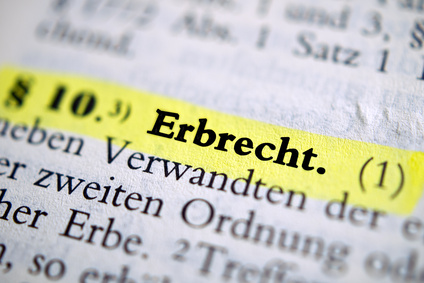Probate research is defined as determining the closest living relative on the day of death of a person, therefore the legal heir of the testator. The prerequisite for this is that the decedent has left no will, or it is invalid. In rare cases testamentary heirs whose whereabouts are unknown can also be sought. Decisive for German inheritance law is the fifth and last book of the German Civil Code (BGB), in particular paragraphs § 1924 to § 1936 for legal succession.
The mere location of the legal heirs, however, is not enough. In order to effect the certificate of inheritance generally required at the Probate Court for contestation of the bequest, comprehensive proof, most often civil status certificates and excerpts from church registers, must be obtained. The time period covered often stretches across decades, sometimes even over centuries. A good source and archive customer is therefore essential for a probate researcher.
Finally, the heir locator also assumes the contestation of the bequests on behalf of the heirs. Especially in larger communities of heirs there are often disagreements between the heirs who, although they are part of the same family, often don’t know each other personally. Here the heir locator intervenes as a moderator and provides for the payment of the bequest to all the heirs.
